24+ Sample Agency Contracts
-
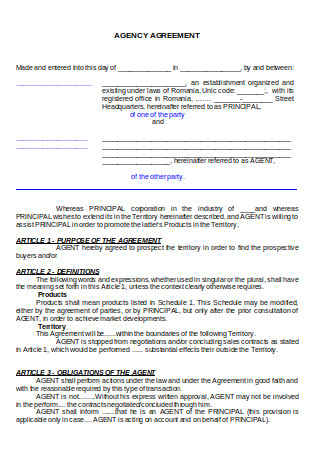
Standard Commercial Agency Contract
download now -
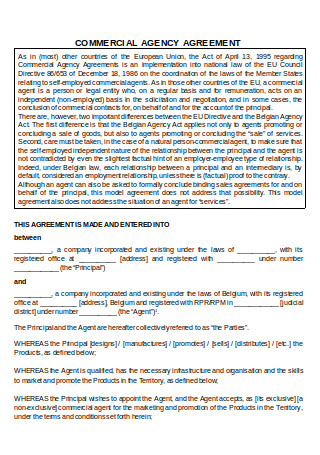
Commercial Agency Agreement
download now -
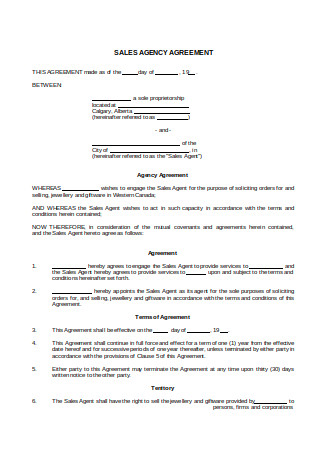
Sales Agency Agreement
download now -
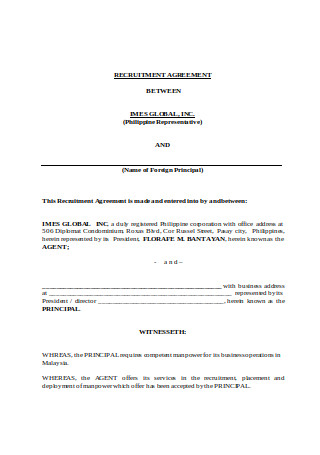
Recruitment Agreement
download now -
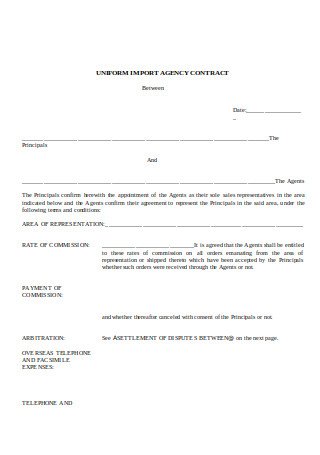
Uniform Import Agency Contract
download now -
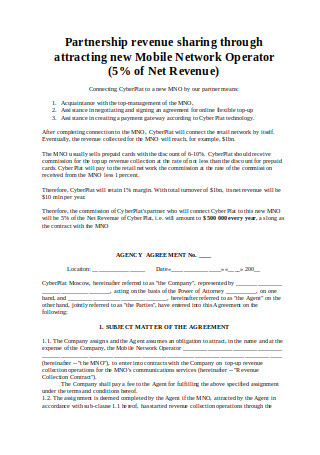
Standard Agency Agreement
download now -
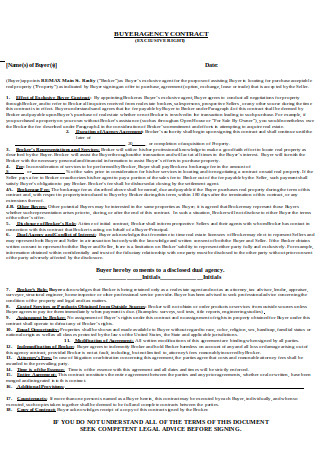
Buyer Agency Contract
download now -
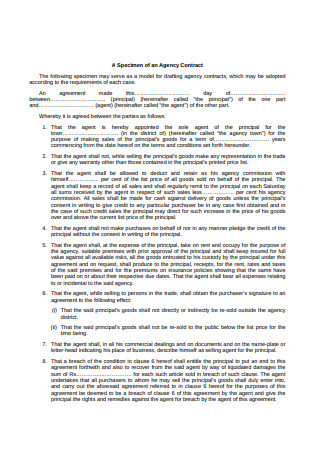
Specimen of Agency Contract
download now -
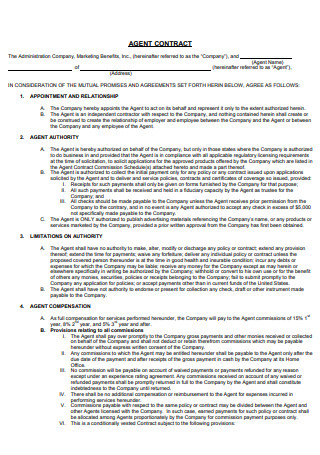
Agent Contract
download now -
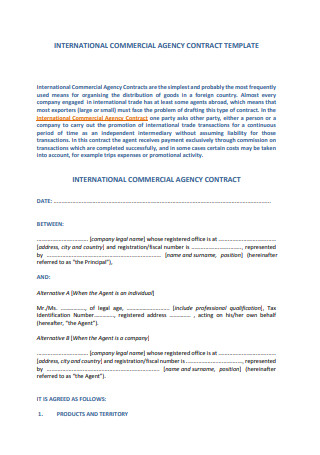
International Commercial Agency Contract
download now -
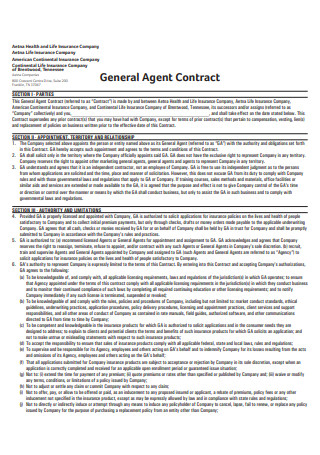
General Agent Contract
download now -
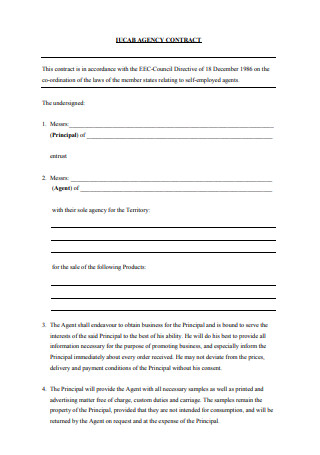
Model Agency Contract
download now -
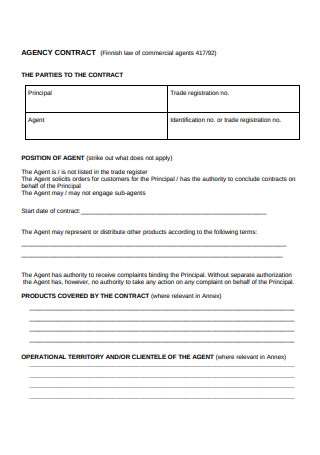
Sample Agency Contract
download now -
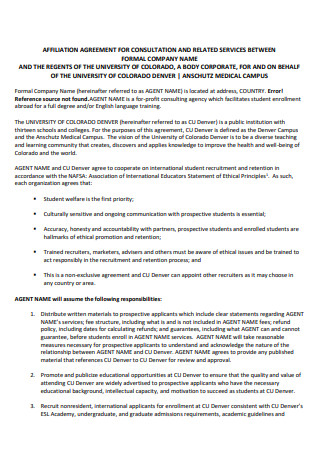
Agency Contract Example
download now -
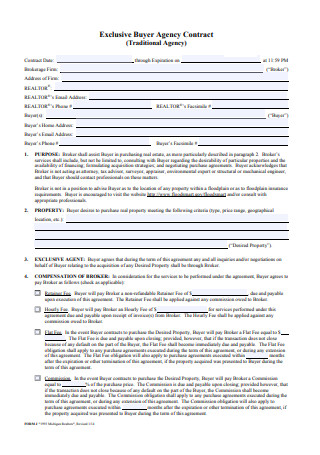
Exclusive Buyer Agency Contract
download now -
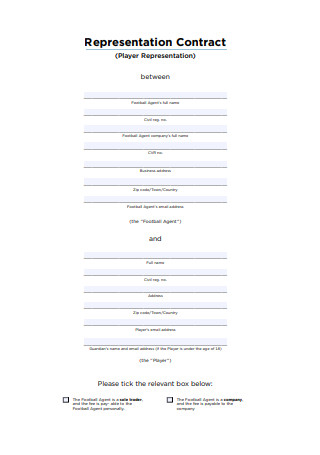
Representation Contract
download now -
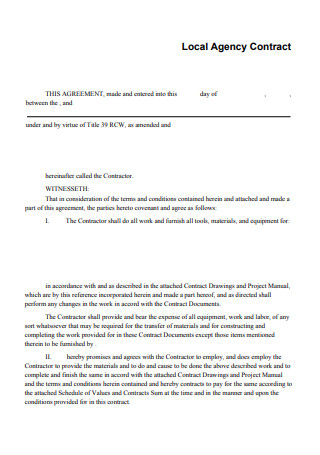
Local Agency Contract
download now -
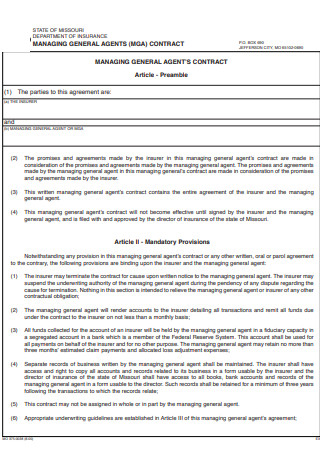
General Agent (MGA) Contract
download now -
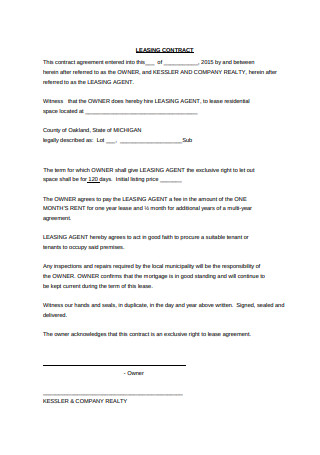
Leasing Agent Contract
download now -
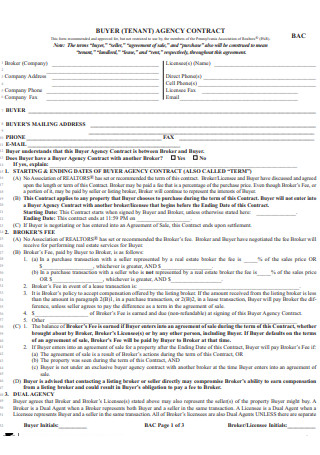
Buyer Agency (Tenant) Contract
download now -
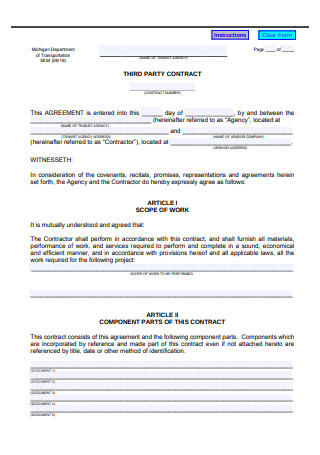
Third Party Contract
download now -
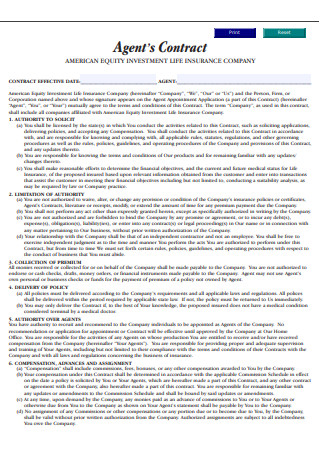
Agent’s Contract Sample
download now -
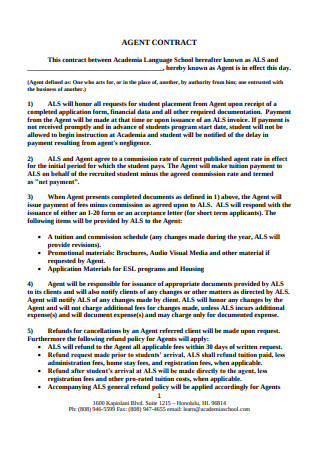
Academia Agent Contract
download now -
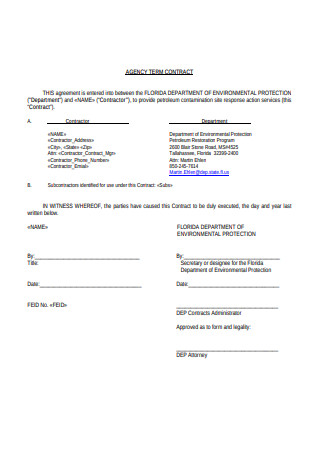
Agency Term Contract
download now -
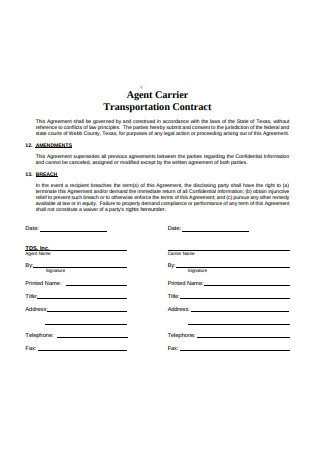
Agent Carrier Transportation Contract
download now
What is an Agency Contract?
A contract of agency is a representation agreement between persons or business entities—the principal and the agent. An agent is a person engaged by the principal to act on his behalf; he represents the principal in his dealing with a third person. On the other hand, the principal is a person whose benefit the agent acts for. An agent’s responsibility under an agency contract can range from physically representing a principal in meetings or events—i.e. being a proxy of the principal in a shareholder’s meetings—to signing contracts with third persons in the name of the principal. In short, an agent is an extension of his principal’s person.
Importance of Executing an Agency Contract
There’s only twenty-four hours in a day and seven days in a week, which is not enough for some people to accomplish their goals. Some wish they could be at two places at once to get things done. That’s actually made possible by hiring the services of agents.
When selling or buying property, people often hire the services of a real estate broker. This makes the selling process easier and faster for the property owner. It saves him time and struggle.
If you’re a small business owner or a sole proprietor, hiring an agent would help you to save time; hence, you can get more job done and get more deals signed. You can be more efficient in handling business affairs. For example, hiring a marketing agency to market the products and services of your business. Or hiring a sales agent to sell your products or services.
If you’re a company that’s struggling to find clients hiring the services of commercial agents can help you increase sales. Commercial agents work by finding their principal potential business partners or clients. We can say that they’re scouting agents, but instead of finding talent, they help find you, business partners and clients.
In the event, you have to deal with transactions having legal significance hiring an attorney who is knowledgeable on the law would be preferred. Hiring the services of an attorney to represent you in legal affairs constitutes an implied contract of agency. In this arrangement, the lawyer is representing your person to third persons.
Common Contents of an Agency Contract
A contract of agency can be either a formal or an informal agreement. As a contract, an agency agreement has to follow a standard format. Below are standard provisions that are found in an agency agreement.
Types of Agency Contract
When we speak of an agency contract, real estate agents are what usually crosses our mind. It’s a common type of agency that most of the population has dealt with. Hence, this part of the article focuses on real estate agency contracts. Realtor Magazine identifies six (6) types of agencies that a property owner deals with. In the process of selling property, a number of people are involved—buyer, seller, and agent. In this light, agents are seen in different perspectives, as discussed below, an agent can be a:
1. Seller’s agent
Under this type of agency contract, the agent’s primary duty is to sell the property of his principal under the terms set by the owner-principal. The agent’s obligations include listing the property for sale, finding a buyer, conducting open-house events, negotiating the best price, and dealing with the legal papers.
2. Buyer’s agent
Unlike a seller’s agent agreement which concerns itself with the seller’s interest, a buyer’s agent concerns itself with a buyer’s interest. The agent’s primary duty is to find a property for his principal—who is a person seeking to buy real property. The agent’s obligations include finding a property according to the likes of his principal, taking the principal to house tours, offering a price on behalf of his principal, negotiating the best price, and helping his principal with the legal paper works.
3. Subagent
It is an agency agreement that is not recommended. Under this agency contract, a buyer’s agent is converted into a subagent when his principal finds a property from another agent’s listing (not his agent). In turn, the buyer’s agent becomes an agent of the selling agent.
4. Disclosed Dual Agent
It is a type of agency contract where the agent works for both the buyer and seller of the property. Both the buyer and the seller must give their express consent to the dual agency agreement. This agent’s obligations include dealing with the transaction process which is usually tricky since he has to take into consideration both side’s interests. As a consequence, he acts as a mediator between the buyer and selling in reaching mutually agreed terms for the transaction.
5. Designated Agent
This is similar to a dual agency where the agent represents both the buyer and the seller’s interest in the same real estate transaction. However, in this agency, the agent is merely appointed by the real estate firm, not through the personal choice of the buyer or seller.
6. Non-Agency Relationship
This form of agency happens when a buyer does not enter into an agency contract with a real estate broker but opts to buy property from him.
How-to Guide in Writing an Agency Contract
You don’t have to be a professional writer to be able to write an agency agreement. All you need is a basic understanding of contract construction and relevant laws concerning the type of contract you’re writing. Below are tips to serve as a guide when you’re drafting an agency contract.
Step 1. Consult with your client
A contract of agency is a fiduciary relationship, as a fiduciary relationship, it is based on trust. Consultation with a client before drafting an agency contract eases the client and makes her trust you more. Through consultation, you’ll be able to know what the client wants and you can draft the scope of obligation and the boundaries of the authority given to you by the client.
Step 2. Dumb it down
When drafting an agency agreement or any contract for that matter, it would be best to use non-technical terms an average person would easily understand. Legalize language can be difficult to comprehend, this may sway your client to unsureness with respect to continuing with the transaction. Confusion can create doubt in a client’s mind. And we need to remember that a contract of agency is based on trust. Hence, there is no room for doubt.
Step 3. Be simple and specific
If you don’t think a section in your contract is relevant then delete it. Do not add unnecessary content that would confuse your client. It’s best to keep your contract simple and concise. Don’t forget to be specific. Clarify the rights, obligations, and liabilities of the parties. What is expected on both sides? This ensures a complete understanding of the agreement.
Step 4. Address client’s issues
A common client issue is the refund agreement which comes into place if the agent is unable to sell his principal’s property after the lapse of the period fixed in the contract. It’s best to have a contingency plan to deal with future issues.
Step 5. Consult an attorney
A contract is a legally binding document, and there’s bound to be legal consequences when entering in one. Have a lawyer read your contract. It’s best to have an expert’s input. Ask for revisions when necessary.
We might find ourselves being stuck in a conundrum between choosing to do one thing over another just because we can’t be in two places at once. An agency contract is a helpful tool to get those things done efficiently. Now that you have an ounce of understanding on agency contracts, draft your own contract or choose from our templates.
